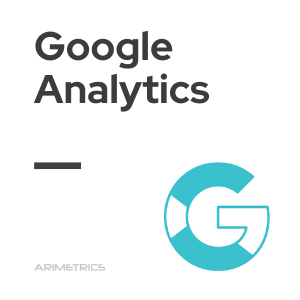 Definition:
Definition:
Google Analytics is a web analytics tool provided by Google that allows website owners and analysts as well as other applications to collect, measure and analyze data about user interactions. Through its interface or API, users can access detailed analytics data to help understand user behavior, optimize the site experience and improve digital marketing strategies.
Origin of Google Analytics
Google Analytics is a web analytics service that allows website owners to better understand user behavior and optimize their online presence. It was launched in November 2005, following Google’s acquisition of Urchin Software Corporation. This acquisition allowed Google to integrate Urchin’s analytics capabilities into its own platform, creating a powerful and accessible tool for web analytics.
Chronological evolution of Google Analytics:
- 2005: Google acquires Urchin Software Corporation and launches Google Analytics, based on Urchin’s technology.
- 2006: Google Analytics introduces improvements to the user interface and the ability to create custom reports.
- 2009: New features are implemented, such as mobile site analysis and integration with Google Ads.
- 2012: Universal Analytics is launched, allowing the tracking of users across multiple devices and platforms by entering the user ID.
- 2013: Google Analytics Premium is offered, a paid version with advanced features for large companies.
- 2017 – Google launches Google Analytics 360 Suite, an integrated solution for large organizations with complex analytics needs.
- 2020: Google Analytics 4 (GA4) is introduced, focused on event analytics and with enhanced machine learning capabilities.
- 2023: Google closes Universal Analytics service
Google Analytics versions
Over the years, Google Analytics has evolved to offer versions that adapt to the changing needs of users, providing more sophisticated and accurate tools for data analysis:
- Google Analytics Classic: This was the first version released after Google acquired Urchin in 2005. It offered basic web analytics functionality, allowing users to track visits, traffic sources and user behaviors on their websites. Although limited compared to later versions, it laid the groundwork for accessible and free web analytics, democratizing access to analytics data for businesses of all sizes.
- Universal Analytics: Introduced in 2012, Universal Analytics represented a significant advance in data analysis. This version enabled the tracking of users across multiple devices and platforms, introducing the concept of user IDs to track individual interactions more consistently. Universal Analytics also improved data accuracy by integrating new metrics and dimensions, and expanded customization capabilities with the introduction of custom dimensions and metrics.
- Google Analytics 4 (GA4): Launched in 2020, GA4 marks a fundamental shift in how data is collected and analyzed. This version focuses on an event-driven data model, enabling more detailed and flexible analysis of user behavior. GA4 incorporates advanced machine learning capabilities to provide predictive insights and automatic recommendations. In addition, it offers deeper integration with Google Ads, making it easier to optimize ad campaigns and improve conversion attribution across different channels. GA4 also better accommodates growing data privacy concerns, with a focus on cookie-free analytics and compliance with privacy regulations.
How Google Analytics works
Google Analytics provides a comprehensive approach to data analysis, centered on an event-driven model that enables detailed tracking of user behavior on websites and applications. Its main functionalities include:
- Event analytics: Facilitates tracking of specific user actions, such as clicks, downloads and video plays, providing a detailed view of user behavior at each stage of their interaction.
- Funnel visualization: Allows you to configure customizable conversion funnels to accurately identify leak points in the conversion process. This helps to optimize the customer journey, providing insights on underperforming pages and critical points in the funnel.
- Advanced segmentation: Offers capabilities to create audiences based on specific events and conditions, facilitating detailed analysis of particular behaviors and enabling the personalization of marketing campaigns.
- E-commerce reporting: Provides detailed reports on sales activity, including transactions, revenue and other key metrics. It also enables tracking of commerce-related events, such as product displays and adding products to cart, providing a deeper understanding of purchasing behavior.
- Machine learning integration: Employs machine learning to deliver predictive insights, such as conversion probability and user retention, helping companies anticipate user behavior and make informed decisions.
Google Analytics integrations with other Google tools
Google Analytics integrates seamlessly with several Google tools, amplifying their functionality and providing a more complete view of digital performance. These integrations allow users to optimize their marketing strategies and improve user experience. Below are some of the most notable integrations:
- Google Ads: Integration with Google Ads allows users to import ad campaign data directly into Google Analytics. This makes it easy to track ad performance, optimize campaigns and measure advertising ROI. Users can analyze how Google Ads campaigns influence user behavior on the website.
- Google Search Console: By linking Google Analytics with Google Search Console, users can access detailed data on organic search performance. This integration provides information on search queries driving traffic to the site, page performance in search results, and SEO optimization opportunities.
- Google Looker Studio: Google Looker Studio allows users to create custom reports and dashboards using Google Analytics data. This data visualization tool facilitates the presentation of insights in a clear and understandable way, helping to make informed data-driven decisions.
- Google Tag Manager: Integration with Google Tag Manager simplifies the management of tracking tags on the website. Users can implement and update Google Analytics tags without modifying site code, streamlining the process of tracking and customizing data.
- Firebase: For mobile applications, integration with Firebase allows developers to track user behavior within applications. This includes event analysis, campaign attribution and conversion tracking, providing a complete view of the user lifecycle in mobile apps.
